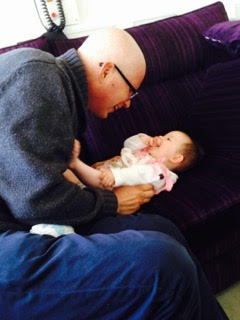We often post articles on Twitter and Facebook about what to say to a friend or family member who has cancer, or how you might help them. We’ve also noticed that these often get a huge number of hits! That got us wondering how the members of our growing Shine community have been helped by family and friends when they’ve been ill – so we asked them! We got some great responses and we’ve summarised them below. Have a friend in need? Take a look below and see if we can inspire you!
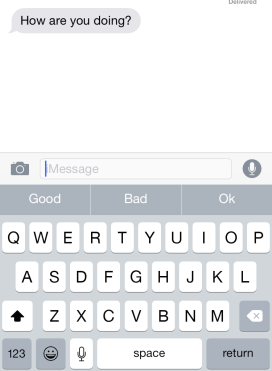 1. Let them know you’re thinking of them
1. Let them know you’re thinking of them
“One of my friends sent me a card every week that I was in the hospital – and I was in there for a long time. It was so nice to receive a surprise in the mail and to hear all her news. I’m not sure she knows how much it meant to me but I’ve kept all the cards as a reminder of what a great friend she is”.
When you’re ill, sometimes just knowing that you’re still part of the land of the living is all you need. A text, a card, a phone call – no matter how brief – can make a huge difference to someone who hasn’t been out and about much, especially if you’re clear that you don’t expect a reply. Being ill can be very lonely so knowing that your friends and family are still thinking of you can make a huge difference.
2. Cook
“A friend bought 12 homemade freezer meals at two separate points during chemo. Even though I didn’t feel like eating most of the time at least I knew there was something quick, easy and on hand for my husband and daughter. I was very touched at her kindness and effort”.
If you’re a whizz i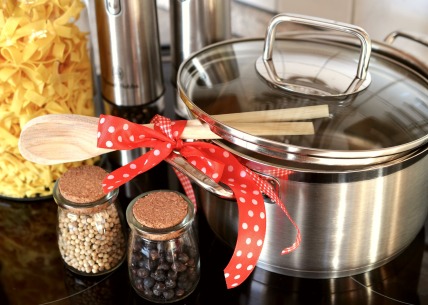 n the kitchen, there’s nothing quite like a homemade meal to perk up someone who isn’t feeling great. And even if they don’t feel like eating because treatment has done a number on their appetite, you might be easing their stress by making sure other members of their family have something quick and easy to eat when the hunger pangs hit.
n the kitchen, there’s nothing quite like a homemade meal to perk up someone who isn’t feeling great. And even if they don’t feel like eating because treatment has done a number on their appetite, you might be easing their stress by making sure other members of their family have something quick and easy to eat when the hunger pangs hit.
3. Clean
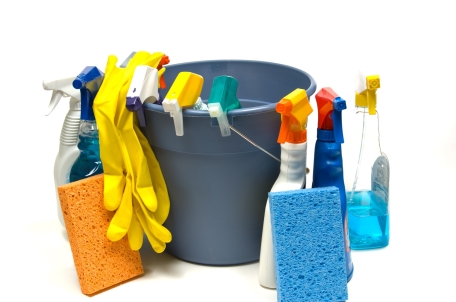 Not big on cooking? How about cleaning? A lot of our Shine members mentioned that they’d had friends who had popped in to clean the bathroom and kitchen, or put fresh sheets on the bed (and do the laundry) while they flaked out in front of the tv. There’s nothing quite like clean sheets and a nice fresh towel – and it doesn’t take very long either!
Not big on cooking? How about cleaning? A lot of our Shine members mentioned that they’d had friends who had popped in to clean the bathroom and kitchen, or put fresh sheets on the bed (and do the laundry) while they flaked out in front of the tv. There’s nothing quite like clean sheets and a nice fresh towel – and it doesn’t take very long either!
4. Hang out
“For me, I was happy just to have people to keep me company. I think as a young lad people don’t know what to say and some people found it easier to avoid me. I was happiest when people just came round and played computer games or chatted, especially when I couldn’t do much else beyond letting them in!”
 Your mate may not be up for a heavy night down the pub, but heading over to his or hers with a movie, a computer game or even a pack of cards can really boost someone’s spirits. Something that doesn’t require a lot of mental or physical energy – like hanging on the sofa – but keeps them involved in the world around them is often really appreciated.
Your mate may not be up for a heavy night down the pub, but heading over to his or hers with a movie, a computer game or even a pack of cards can really boost someone’s spirits. Something that doesn’t require a lot of mental or physical energy – like hanging on the sofa – but keeps them involved in the world around them is often really appreciated.
5. Get them out and about
“I went to Glastonbury festival after my treatment and all my friends had to take it in turn to carry all my belongings and helping me hobble around. I felt guilty about ruining their fun, but in reality I genuinely felt they were happy to have me there. This reassurance was enough for me.”
We get it – being around really sick people can be scary. But helping a friend by taking them out, even if they’re going to need extra support, can help them feel like they’re still participating in all the things that they should be doing. Keep in mind that they might not be able to walk long distances or stay out late, but if you can pick them up and drive them to a restaurant, or help them carry their stuff without making them feel bad, you’re more than half way to making their day!
6. Entertain the kids
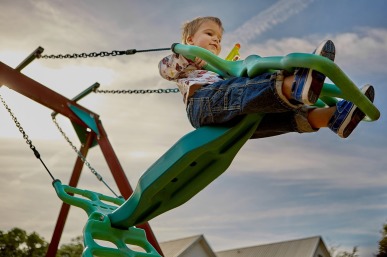
Let’s face it, kids can be exhausting at the best of times. If your friend has little ones, why not take them out for an afternoon or come over and cook them dinner while your friend has a nap? If they’re old enough, an afternoon movie or a trip to the park could give your friend a much needed break. Or invite your friend and the kids over. You entertain them while your friend chills out with a cup of tea!
7. Head to the hospital
Something that everyone with cancer knows is that it’s time consuming – and hospital appointments can take ages. If your friend is spending more time with the nurses and doctors than his/her mates, why not offer to keep them company? Ask if they’d like someone to take them to the hospital, pick them up, or hang out in between. Having someone to gossip to can be a great distraction from the blood tests, scans and doctor chats.
8. Walk their dog
 Does your friend have a pooch? Why not ask if you can help walk the dog a few times a week? If your friend is happy for you to do it, see if you can get a few other friends together and organise a walking roster. On a good day, your friend might just want company for the walk. On a bad day they’ll be glad to have someone do the walking (and poo scooping!).
Does your friend have a pooch? Why not ask if you can help walk the dog a few times a week? If your friend is happy for you to do it, see if you can get a few other friends together and organise a walking roster. On a good day, your friend might just want company for the walk. On a bad day they’ll be glad to have someone do the walking (and poo scooping!).
9. Organise a treat
“One of the most helpful things was planning something nice for my husband and I to do or go for a treat on the week before my next chemo. These did not cost much or sometimes nothing at all but it was something to focus on in the rotten days”.
“My friends always organised a get together on “chemo eve”, which was lovely.”
Cancer can be expensive! Not only are you missing work, but you’re spending your money heading to and from the hospital, on parking charges, and on extra blankets and heating to keep you warm. If you’re looking for a simple way to cheer someone up, why not plan a night out to the cinema or a comedy show? Book tickets when you know they’re free and either take them yourself or organise for others to go with them. (One minor note of caution: if you can, check if there’s cancer in the movie at all. You’d be surprised how many people in movies die of cancer. It’s not what you need when you’re going through treatment!).
10. Help them celebrate

Having the energy for Christmas, Easter or a birthday can be tough when you’re coping with a cancer diagnosis. Does your friend need help buying a tree or getting the decorations out? It can be hard for people to know what they need but asking specifically how their planning for a holiday is coming can open up whole new possibilities for help! Buy the Easter eggs, plan the hunt, decorate the tree, light the candles, buy the cake….the options are practically endless.
Got more ideas? What have we missed? Let us know! Comment below or Tweet us @shinecancersupp



